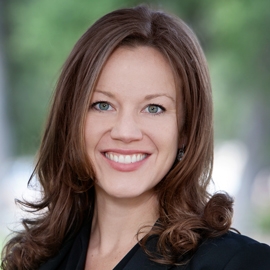Bio
Katherine Casey is an associate professor of political economy at Stanford Graduate School of Business. She teaches a Strategy Beyond Markets course for first-year MBAs that is tailored to the particular opportunities and challenges facing firms investing in developing economies. Her current research examines how asymmetric information in electoral contests affects voting choice and public sector performance, and the impact of foreign aid on collective action and economic development. Katherine holds a PhD in Economics from Brown University and a Masters in Public Policy from Harvard University. She has worked as a consultant for the World Bank in Madagascar, the Comoros and Indonesia, and has spent several years working with the Government of Sierra Leone.

